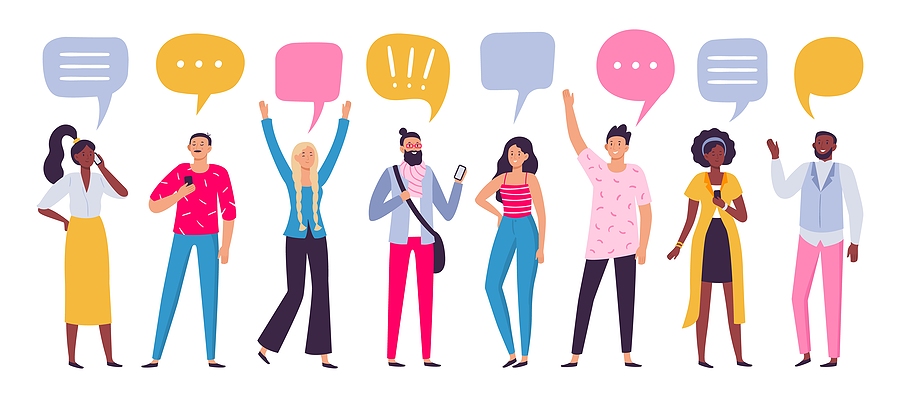
3 Secrets to Learning the Language of Social Selling
Author Lorem ipsum dolor sit amet, consectetur adipiscing elit. Vivamus tempus mi diam, a sollicitudin tortor bibendum eu. Donec porta ex in semper finibus. Nunc cursus vehicula fringilla. Pellentesque pretium lacus in vehicula lobortis. Pellentesque sed varius risus, nec feugiat dolor. Sed molestie tincidunt fermentum. Morbi ultricies laoreet velit, at lacinia urna congue vitae. Pellentesque habitant morbi tristique senectus et netus et malesuada fames ac turpis egestas. In dui lectus, ultrices rutrum magna fringilla, elementum suscipit felis. Phasellus molestie porta risus.
Social selling is like learning a new language: challenging, complicated, and inconsistent with the rules you’ve always known.
Learning a new language is much more difficult once you reach adulthood. It seems the cerebral cortex becomes less elastic over time, making it harder to learn a foreign tongue. But recently, I was reading an article by Caillin Murray, and in it, I made a shocking discovery.
He says that although it might be harder to learn a new language as an adult, it is nowhere near impossible. The same way that we pick up new lingo as our social and political perceptions evolve, we also pick up new habits and dialects as social media evolves. The more we are exposed to social media, like any new language, the more we learn to speak it.
There are some tricks to make the learning process easier, though. Here they are:
1: Determination
Being dropped into a new place where you are not understood can be a real motivating factor to learn a language. So it is with social selling.
An empty sales funnel and colleagues leveraging Twitter and LinkedIn all around you is a supreme motivator to get good at social media. If you feel that social media is just a ‘nice to have’ addition to your other sales methods, there is a good chance you will never become proficient at it. Furthermore, Murray nails it with a quote from Steve Kaufmann, a Canadian linguist, “The ones that rely on going to the classroom, they never improve. The feeling is that it is up to the teacher: ‘Teacher, teach me.’ ” The student must want to learn. She must want to change and improve. There must be a reason to learn.
2: Immersion in the new language is a bullet-proof method for new learners to gain proficiency
Once you are determined to learn, frequent practice brings fluency. Social selling is no different. Only by being present and accountable on social channels will you learn to use those channels to make a difference in your paycheck. You need to find customers who can make decisions and buy your products, and then slowly build trust and influence day by day. Certainly you will learn shortcuts over time, and it will be a difficult slog at first. Staying at it and being determined will yield success.
3: A willingness to learn is a willingness to make mistakes
Having learned modern Greek, Spanish, and Italian over the years in preparation for trips abroad, I have learned this lesson well. I recall asking a maid on Crete for extra towels entirely in the third person plural because it was the only construction I remembered. I am sure I sounded ridiculous, but I got my meaning across and she was even willing to help me learn better Greek for future conversations.
It is the same with social selling. You may make some mistakes, but if your purposes are pure, others will surely help you along. If you desire to help your customers by giving good advice on social channels with no immediate reward expected, you’ll do fine. There is very little to worry about.
Social media isn’t just for the kids– but that being said, know your audience. If you love to communicate with people, social outlets give you a chance to get your ideas in front of lots of customers and executives. But know the difference between LinkedIn and Twitter! Social selling isn’t a uniform language; it’s knowing how to switch between dialects. Know where to don your professionalism, and where to crack a joke or share an amusing anecdote.
Business isn’t all “businesslike” anymore. Like any language, social selling continues to evolve – and we all need to keep up.
![Validate my RSS feed [Valid RSS]](https://thought-horizon.com/wp-content/uploads/2019/05/valid-rss-rogers.png)